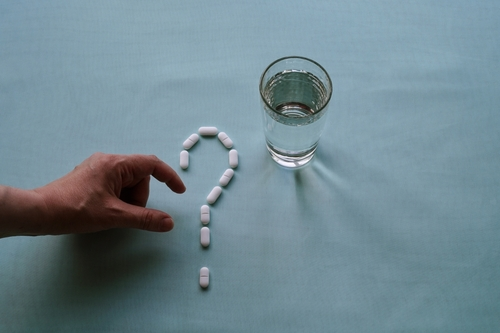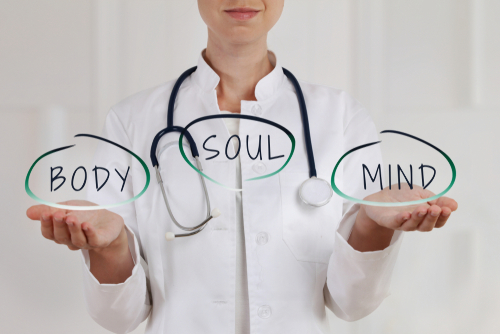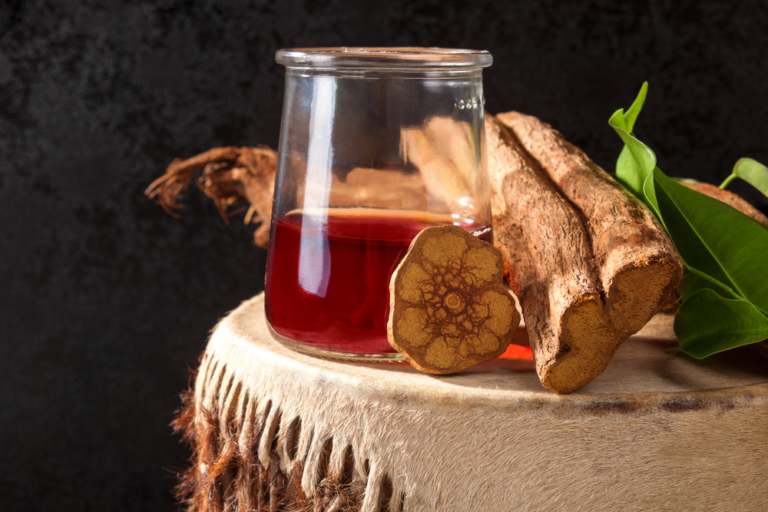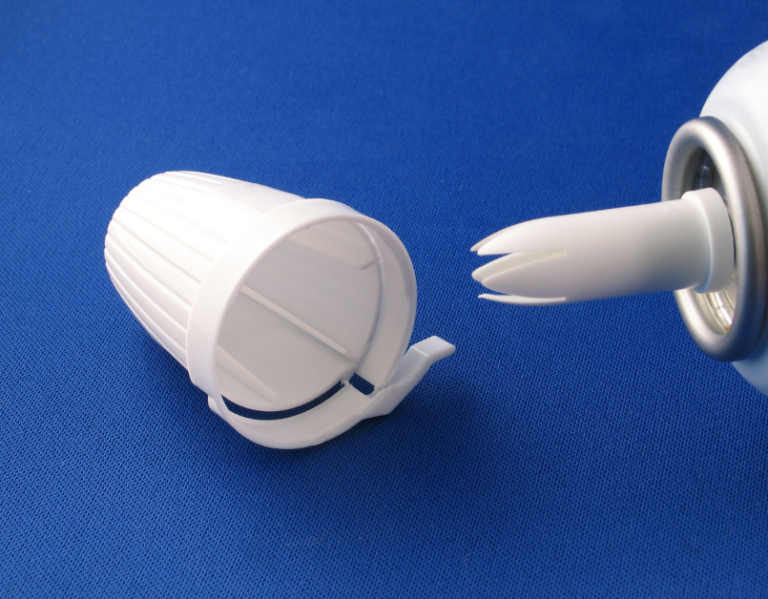The path to recovery from addiction is unique for each individual. A method drawing increasing focus is Medication-Assisted Treatment or MAT. As outlined by the FDA, MAT merges medication with counseling and behavioral therapies. It offers a balanced approach to treat alcohol, benzodiazepine, and opioid use disorders.
But here’s a question we often get asked: Are individuals on MAT still staying sober? This isn’t just about semantics. It goes into the complexities of recovery and the range of tools available. Let’s talk about it!

What is Medication-Assisted Treatment (MAT)?
So, what exactly is medication-assisted treatment (MAT)? It’s an approach tailored for those battling substance use disorders and in need of help to achieve staying sober, where FDA-approved medications meet counseling and behavioral therapies. This strategy aims to balance brain chemistry, mitigate dependence on opioids, alcohol, and other physically addictive substances, and alleviate withdrawal symptoms and cravings. The goal is to restore normal bodily functions without relying on illicit and harmful substances.
Let’s look at some common medications used in MAT:
- Buprenorphine: Available in products like Brixadi, Suboxone, and Zubsolv, buprenorphine plays a critical role in reducing opioid dependence. It works by partially activating opioid receptors in the brain, which helps reduce cravings and withdrawal symptoms.
- Methadone: Used in forms such as Dolophine and Methadose, methadone is effective in decreasing cravings and easing withdrawal symptoms. It acts by fully activating the brain’s opioid receptors, but in a controlled manner that avoids the high associated with opioid abuse.
- Naltrexone: Marketed as Vivitrol, naltrexone helps in recovery by blocking the euphoric and sedative effects of opioids. It works differently from buprenorphine and methadone, as it completely blocks opioid receptors in the brain.
The choice of these medications isn’t arbitrary. It’s based on individual needs and the specific nature of their opioid dependence in order to help individuals struggling with staying sober.
Read more: What Medications Are Used in Detox vs. MAT?

The Concept of Staying Sober in MAT
When it comes to Medication-Assisted Treatment (MAT), sobriety isn’t just black and white. This sparks a lively debate. Can using medications like buprenorphine or methadone align with staying sober, or does it contradict it? Critics often point to the pharmacological effects of these medications as a challenge to traditional concepts of staying sober. Yet, there’s another side to this story.
Notable Benefits of MAT:
- Focus on Stabilization: MAT medications don’t cause the high associated with opioid use. Their role is more about stabilizing the individual’s condition. This is a key difference that sets MAT apart.
- Curbing Cravings: These medications are effective in reducing the intense cravings that come with alcohol, benzodiazepine, barbiturate, and opioid addiction.
- Supporting Active Recovery: By minimizing withdrawal symptoms, MAT enables a more engaged participation in counseling and lifestyle modifications.
- Lifesaving Potential: Research indicates improved survival rates for those undergoing MAT. Studies have shown that using FDA-approved medications for opioid use disorder reduces the death rate among those with addiction by 50% or more.
- Reducing Relapse: Patients on MAT are less likely to relapse
- Boosting Employment Prospects: As individuals regain stability, their chances of maintaining or securing employment increase.
These aspects of MAT offer a fresh lens through which to view staying sober in the context of opioid addiction recovery. The effectiveness of MAT goes beyond traditional views. This approach challenges us to rethink our definitions of recovery and sobriety.
Beyond Medication – Holistic Alternatives in Addiction Treatment and Help with Staying Sober
Medication-assisted treatment (MAT) is a foundation in addiction therapy, yet it’s just one part of a broader, more inclusive approach. Holistic and alternative therapies play an essential role as well. They can complement MAT to create a complete recovery experience. Let’s look at some of these therapies and understand how they can benefit individuals, especially when combined with MAT and guided by medical professionals.
Key Holistic Therapies and Their Benefits:
- Meditation: Enhances mindfulness, reduces stress, and helps individuals to stay centered and focused during recovery.
- Yoga: Combines physical postures, breathing exercises, and meditation to improve physical strength, flexibility, and mental clarity.
- Acupuncture: Often used to alleviate withdrawal symptoms, reduce cravings, and promote emotional balance.
- Art Therapy: Offers a creative outlet for expression and emotional exploration and aids in processing and healing.
- Music Therapy: Encourages emotional expression, reduces stress, and can improve mood.
- Equine Therapy: Involves interaction with horses to build emotional connections, trust, and personal responsibility.
- Nutritional Counseling: Focuses on improving diet for physical health, which can positively affect mental well-being.
- Experiential Therapies (like outdoor adventures): Helps build self-esteem, teaches coping strategies, and enhance problem-solving skills.
When combined with MAT and supervised by healthcare professionals, each of these therapies can lead to a more holistic and comprehensive recovery. They address not only the physical aspects of addiction but also the emotional, mental, and spiritual needs. This paves the way for a life that is not just about surviving addiction but thriving beyond it while staying sober.
Read more: How Long Does It Take To Detox From Fentanyl?

Asheville Detox Center – Our Approach to Recovery
At Asheville Detox Center, we recognize that everyone’s path to recovery is their own. We’ve shaped our goals around creating a secure, supportive environment backed by evidence-based methods that can help you with staying sober. Our team is here to assist around the clock in a setting that is both private and confidential, tailoring our care to each person’s journey towards sobriety.
A vital element of our approach is our dedication to medical detox. This phase is vital, guaranteeing the safety and stability of our clients during detoxification. Our skilled detox specialists oversee this phase and aim to reduce discomfort while maximizing safety. We believe in a continuum of care, thus providing a smooth transition from detox to various subsequent stages of addiction treatment. That includes aftercare plans.
Recovery with Medication-Assisted Treatment
Taking the first step towards staying sober with medication-assisted treatment (MAT) marks a significant moment. At Asheville Detox Center, we suggest discussing this with our admissions coordinator. This talk lays the groundwork for a treatment plan tailored to you, potentially incorporating medical detox, counseling, and various therapeutic methods.
As a member of Health Care Alliance North America, Asheville Detox Center is linked with a respected network of addiction treatment centers that are helping individuals by staying sober. Our connections include Knoxville Recovery Center and Oasis Recovery Center. These partnerships enable us to extend a broad spectrum of services. They range from inpatient to outpatient and dual diagnosis treatments across multiple states.
Ready to start your journey towards recovery? Contact us, and take that critical first step toward a rejuvenated, sober life. Your path to recovery awaits!







